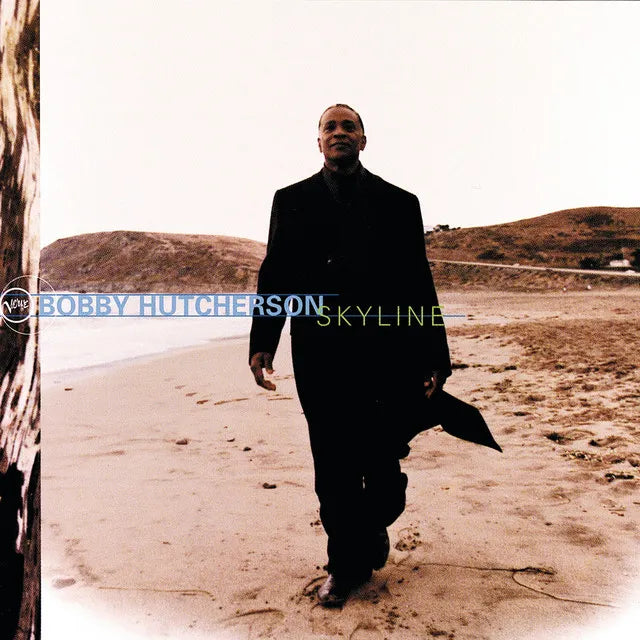


Bobby Hutcherson Vinyl Records & Discography
Bobby Hutcherson Biography
Who is Bobby Hutcherson? A Brief Career Overview
Bobby Hutcherson, a true luminary in the jazz world, is celebrated not only as a master vibraphonist but also as an innovator who redefined the boundaries of his instrument. Born Robert Hutcherson on January 27, 1941, in Los Angeles, Hutcherson's impact resonates across genres, especially within contemporary post-bop, free jazz, and hard bop. He is perhaps best known for his groundbreaking work with Blue Note Records in the 1960s, where his unique sound and advanced harmonic approach distinguished him from his contemporaries. His dedication to the vibraphone helped elevate the instrument's status, making it a central figure in modern jazz. With a career that spanned several decades, Hutcherson's contributions to vinyl culture are profound, as many of his classic albums continue to be treasured by collectors and music enthusiasts alike.
Bobby Hutcherson's Early Life and Background
Bobby Hutcherson's journey began in a household steeped in music and creativity. Raised in Los Angeles by his father Eli, a master mason, and mother Esther, a hairdresser, Bobby was surrounded by vibrant artistic influences from an early age. His siblings played pivotal roles in shaping his musical path--his brother Teddy listened to iconic jazz records while his sister Peggy sang in Gerald Wilson's orchestra. After hearing a Milt Jackson record at the tender age of 12, Bobby fell in love with the vibraphone, marking the start of his lifelong dedication to jazz. Motivated by his family's connections and the early experiences he gained at local dances and performances, Hutcherson's love for music was clear long before he became a household name.
The Musical Influences That Shaped Bobby Hutcherson's Sound
Throughout his remarkable career, Hutcherson drew inspiration from a myriad of jazz legends. The rich harmonies of Milt Jackson and the rhythmic innovations of Lionel Hampton inspired his early sound while his exposure to contemporaries like Eric Dolphy and Archie Shepp paved the way for his exploratory approach to jazz. Hutcherson's work is often characterized by intricate melodies intertwined with emotional depth, reflecting the influences of the vibrant jazz scene of the 1960s. Notably, his admiration for the vinyl records of his time inspired him to curate a collection that showcased pivotal works from legendary artists, deepening his understanding and appreciation of the form.
How Bobby Hutcherson Entered the Music Industry
Hutcherson's foray into the music industry began as a budding passion that evolved during his teenage years in Los Angeles. After initial exposure to instruments through formal lessons, Hutcherson honed his skills in local bands, rapidly gaining respect within the jazz scene. His professional debut came through collaborations with notable artists like Curtis Amy and Charles Lloyd, leading to his first recordings. It was at New York's Birdland Club in 1961 that Hutcherson's inventive vibe playing gained attention, leading to groundbreaking sessions with esteemed musicians. As he developed his signature sound, challenges in producing and distributing vinyl records only fueled his creative ambitions, solidifying his status within the jazz community.
Bobby Hutcherson's Breakthrough and Rise to Fame
A defining moment in Hutcherson's career occurred with the release of his album "Dialogue" in 1965, which showcased his prowess as both an artist and an innovator. The album's impact was magnified by its vinyl release, which resonated with audiences and critics alike, earning him a place within the pantheon of jazz greats. His subsequent works, including collaborations with the likes of McCoy Tyner and Eric Dolphy, solidified his reputation, leading to numerous awards and accolades that highlighted his contributions to the genre. As Hutcherson enjoyed increased media attention, his success enabled him to perform at prestigious venues, allowing fans to experience his mesmerizing live performances both in person and through the cherished medium of vinyl.
How Personal Life Shaped Bobby Hutcherson's Music
Hutcherson's personal experiences played a crucial role in shaping his musical narrative. The bonds he forged with significant figures in his life, including family and collaborators, influenced the themes present in his work. His song "Little B's Poem," written for his son Barry, is a poignant reflection of his intimate connections. Struggles, including dealing with the loss of his cabaret card, introduced complex layers to his persona, but Hutcherson faced challenges with resilience. Throughout his life, his involvement in philanthropy and social activism shed light on his compassionate side, while also inspiring his artistic endeavors, greatly impacting the way his music resonated with listeners.
Discography
Bobby Hutcherson's Current Status and Legacy in the Music Industry
As of 2024, Bobby Hutcherson's legacy remains vibrant in the music world. His recent posthumous works, such as "Enjoy The View" (2014), continue to garner appreciation, drawing in both longtime fans and new listeners alike. Hutcherson has been honored with various accolades, including a lifetime achievement award from the National Endowment for the Arts, exemplifying his lasting impact in jazz. His influence extends beyond his recordings; newer generations of vibraphonists and jazz musicians cite Hutcherson as a foundational figure in their own creative expressions. In the realm of vinyl culture, Bobby's albums continue to be celebrated by collectors, serving as timeless pieces that showcase his innovation and artistry, ensuring that both his music and legacy live on.
Shop the Store
Exclusive 15% Off for Teachers, Students, Military members, Healthcare professionals & First Responders - Get Verified!






























